Jeffrey Paparoa Holman | | 4 min read
Sam Hunt: Hey, Minstrel
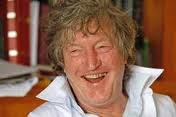
“The stage is good . . . it’s part of my page”.
Somewhere, in one of the many clips of Sam Hunt coming off stage that flicker through the DVD The Purple Balloon And Other Stories, a documentary about the man who must be New Zealand’s best-known poetic identity, the artist in focus comes out with this defining statement, implying to my ears at least that the writing takes place as much as in the delivery to an audience, as in its composition on the blank sheet.
This could invite a raft of interpretations: that he writes to perform, that the poem is not complete until “told”, that words on the page are a kind of musical score, or even that without first acquiring speech by hearing it, we wouldn’t have a language to write with.
All of these are true and perhaps more that haven’t occurred to me as I spin this thought over in my mind.
A kind of false antagonism has been set up amongst many poets: that one writes for the stage or the page, and that real, enduring, serious literature is only found in the latter camp: the written.
Poet, novelist and critic C.K. Stead, interviewed here – while he doesn’t quite say this – implies as much in his guarded praise for Hunt, when he characterises him as part of the entertainment industry, affable in person and effective in this role – but formally limited by his choice of communicating to the people in pubs, clubs and school halls.
High literature versus low-level bardic activity: the latter was the role assigned to Sam Hunt by some academic critics from the Seventies onwards - when they bothered to regard him at all. Hunt has responded in kind and does so here, firing off shots at “academic fuckwits” who have accused him of mythologising the self.
“It's all mythology!” blasts back an exasperated, lubricated Sam.
Wherever you want to stand on this divide – false, in my view – you can’t fail to have missed this DVD’s subject if you’ve been a remotely sentient being in New Zealand over the past 40 years, nor to know that a working poet is alive and kicking in the land.
When James K. Baxter died – a friend and lifelong influence of our man – the role of public poet fell vacant. Sam Hunt, a completely different oracle, picked up Heemi’s finger wagging laurel and changed the delivery. From now on, the poet was the spirit of the road and the road was the poem – often enspirited by mind altering substances in the true Bohemian-to-Beat tradition (plenty of liquor quaffing and reefer toking on view here).
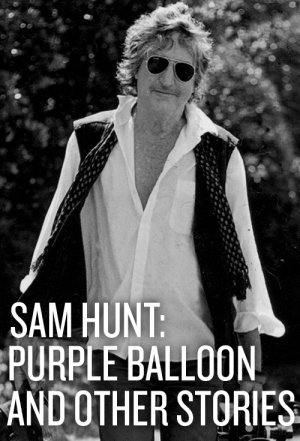 The doco -- directed by Tim Rose and with music by David Kilgour -- proceeds as you might
expect with interviews, file footage, cuts backwards and forwards
through Sam Hunt’s early life and growing sense of vocation, mixing
personal anecdote with performances of the poetry, interviews with
family members (the two brothers are fascinating), fellow artists and
commentators.
The doco -- directed by Tim Rose and with music by David Kilgour -- proceeds as you might
expect with interviews, file footage, cuts backwards and forwards
through Sam Hunt’s early life and growing sense of vocation, mixing
personal anecdote with performances of the poetry, interviews with
family members (the two brothers are fascinating), fellow artists and
commentators.
His background – from an early stammering silence as the last born of an upper middle class family – to his series of seaside and back country hideaways, is captured in such a way as to reveal an essential loneliness, a private self that can’t quite let its guard down. Well, not in the way we might imagine the flow of apparently confessional passages in his writing life suggests.
He’s public, but not public property - and words are words, not deeds.
I respect Sam Hunt’s achievement and have a high regard for his work be it on stage or page; he’s taken poetry to the people and if a straw poll were to be taken on Campbell Live or Close Up, asking those who first heard a poet recite to them where they lived, he’d have to top the list.
He unselfishly promotes other poets in his performances, especially Baxter but also a host of others; for Hunt, a storyteller, poems are not to be read silently alone, but told aloud and enjoyed in company.
Yet somehow, Purple Balloon missed a chance to present a balanced analysis of Hunt’s literary achievement, a corrective to the Stead position that someone such as Bill Manhire could have offered at some length.
Hunt is on the page as well as the stage, and it is in the compositional process that there remains much more to be said.
Perhaps when he is no longer with us for live performances, one of those aforementioned fuckwit academics will grasp that nettle. An analysis of his trademark speech rhythms as powerful mnemonic devices that enable him to recall and recite his vast corpus, by running each line through a memorable liturgical pattern, would be a good place to start.
Hunt has a kinship with the ancient chanters of Māori mōteatea in this respect.
In the meantime, until – and after – his departure to take up a famously truncated conversation with his late father, this excellent and timely piece of filmmaking will do just fine.
Jeffrey Paparoa Holman is an award-winning Christchurch-based poet, novelist and non-fiction writer who lectures in English at the University of Canterbury.
His most recent work is Best of Both Worlds: The Story of Elsdon Best and Tutakangahau, published by Penguin in 2010.
This non-fiction work delves into the 1895 meeting in the rugged Urewera ranges between Best, a self-taught anthropologist and quartermaster, and Tuhoe chief Tutakangahau, which would have lasting effects on our views of traditional Maori society.
For more information and to purchase that book go here, for his acclaimed poetry collection As Big As a Father go here.
Other Voices Other Rooms is an opportunity for Elsewhere readers to contribute their ideas, passions, interests and opinions about whatever takes their fancy. Elsewhere welcomes travel stories, think pieces, essays about readers' research or hobbies etc etc. Nail it in 1000 words of fewer and contact graham.reid@elsewhere.co.nz.
See here for previous contributors' work. It is wide-ranging.

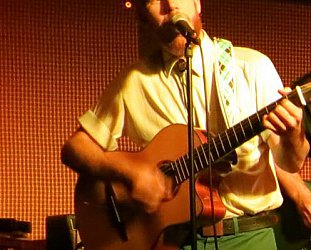
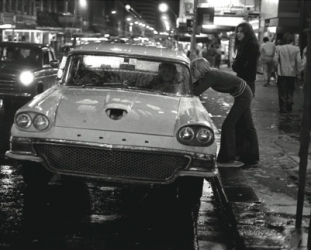
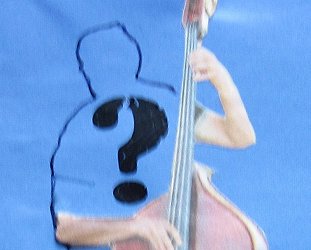

post a comment